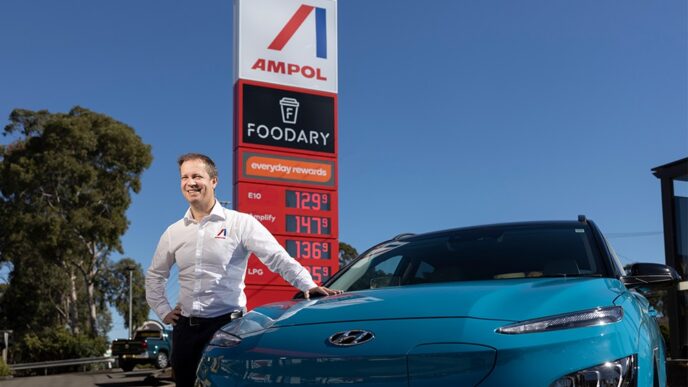Ampol believes it’s well placed to deliver its future energy and decarbonisation strategies.
The company has released its 2023 Climate Report providing an overview of how it’s going from May 2021 to May 31, 2023, and aligned with the Task Force on Climate-related Financial Disclosures (TCFD) framework.
“The Ampol Group is well placed to successfully navigate the energy transition and play a key role in the broader decarbonisation of transport in Australia and New Zealand,” says Ampol managing director and chief executive Matt Halliday.
“In 2021, we set targets to decarbonise our Australian operations and we have a clear pipeline of initiatives to meet the interim emission reduction targets for 2025. Combined with the interim targets to 2030, they will put us on a pathway to meet our ambition to reduce our Australian operational emissions (Scope 1 and 2) to net zero by 2040.”

Halliday says that since acquiring Z Energy in May 2022, Ampol has adopted Z’s previously established commitments to reduce operational emissions in line with the Paris Agreement to limit warming by 1.5˚C, with a 42% reduction by 2030 from 2020 levels.
“We are also committed to helping our customers embark on their energy transition journey. Ampol has an important role to play and we have made significant progress in our test and learn activities across a range of mobility solutions and in progressing the initial rollout of our on-the-go EV charging network.”
The report also includes the release of new climate scenario modelling of the Australian transport sector, building on the climate modelling work released in 2021, suggesting that under plausible climate change scenarios that due to average vehicle ownership periods (10 years in Australia, 14 years in New Zealand), customers’ demand for traditional transport fuels will remain robust well into the 2030s.
Electric vehicle penetration of the total fleet will gradually increase from 2025 to become the predominant mode of transport by 2050 while heavier, long-haul and aviation transport solutions will take longer to emerge and will likely require renewable fuels as an interim to longer term solutions, until hydrogen becomes economic as a transport fuel.
Cash flows from the core business should remain strong to support investment into the transition while maintaining shareholder returns, the report notes.
Electrification of passenger and light commercial vehicles has started, so Ampol is investing to roll out an on[1]the-go fast charging network and is also building strategic partnerships to accelerate EV solutions.
For instance, Ampol has launched a collaboration with EVDirect, the Australian importer and seller of BYD vehicles, and Hyundai, while Z Energy’s EV charging network is expanding with a dedicated Z EV Charging App to enable customers to easily find and pay to charge their vehicles.
Ampol is also undertaking a study with ENEOS to explore the feasibility of developing an advanced biofuels manufacturing facility at Ampol’s Lytton refinery in Brisbane to generate sustainable aviation fuel (SAF) and renewable diesel.








